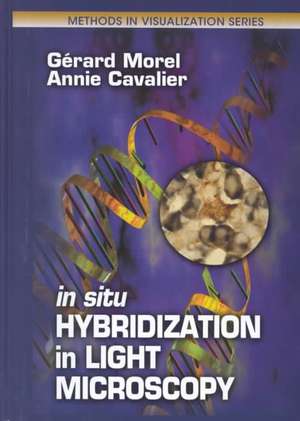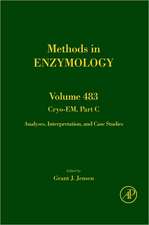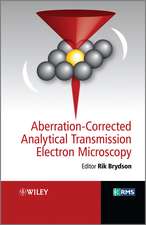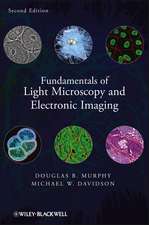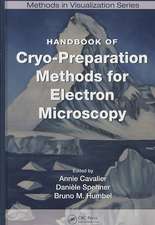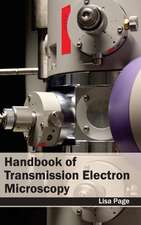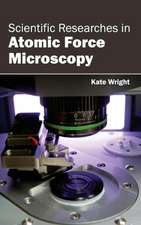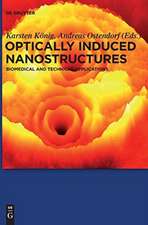In Situ Hybridization in Light Microscopy: Methods in Visualization
Autor Gerard Morel, Annie Cavalieren Limba Engleză Hardback – 28 sep 2000
Preț: 1556.90 lei
Preț vechi: 1898.65 lei
-18% Nou
Puncte Express: 2335
Preț estimativ în valută:
297.90€ • 311.88$ • 246.50£
297.90€ • 311.88$ • 246.50£
Carte tipărită la comandă
Livrare economică 07-21 aprilie
Preluare comenzi: 021 569.72.76
Specificații
ISBN-13: 9780849307034
ISBN-10: 0849307031
Pagini: 342
Ilustrații: 1 equations; 127 Halftones, black and white; 12 Tables, black and white
Dimensiuni: 178 x 254 x 24 mm
Greutate: 0.8 kg
Ediția:1
Editura: CRC Press
Colecția CRC Press
Seria Methods in Visualization
ISBN-10: 0849307031
Pagini: 342
Ilustrații: 1 equations; 127 Halftones, black and white; 12 Tables, black and white
Dimensiuni: 178 x 254 x 24 mm
Greutate: 0.8 kg
Ediția:1
Editura: CRC Press
Colecția CRC Press
Seria Methods in Visualization
Public țintă
ProfessionalCuprins
Probes. Tissue Preparation. Pretreatments. Hybridization. Revelation of Hybrids. Counter-Staining and Modes of Observation. Controls and Problems. Typical Protocols. Examples of Observation. Appendices. Glossary. Index.
Descriere
In Situ hybridization allows the visualization of specific DNA/RNA sequences in individual cells in tissue sections, single cells, or chromosome preparations, and is an especially important method for studying DNA and RNA in heterogeneous cell populations. This book delves into in situ hybridization methods through the use of light microscopy used by molecular biologists, pathologists, geneticists, and biochemists. It will also appeal to research scientists who are interested in visualizing methods for nucleic acids and proteins. The book features a two-column layout for protocols/principles, simplifies the techniques and offers many schemes and tables to help the reader choose the best procedure.
